How a 1904 Prototype Became a Board Game Empire
The History of Monopoly
A stroll down the colorful, cash-strewn avenues of Monopoly, a game that has turned siblings into sworn enemies
Let’s take a stroll down the colorful, cash-strewn avenues of Monopoly, a game that has turned siblings into sworn enemies, made real estate moguls out of eight-year-olds, and given us all a reason to argue over who gets to be the dog.
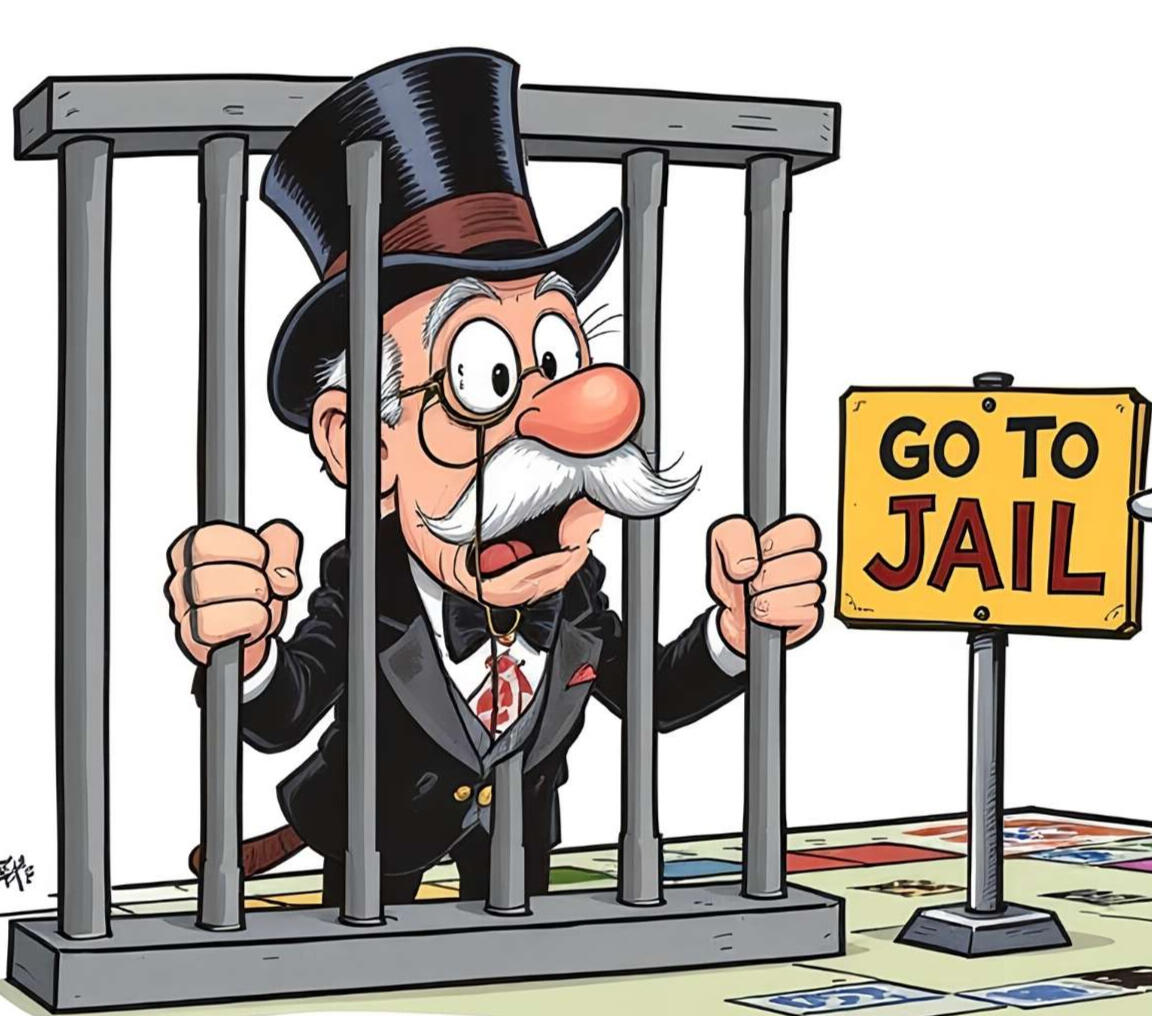
Go To Jail!
But behind the iconic board and its infamous “Go to Jail” square lies a story as twisty as the path around the board itself.So, gather your tokens (dibs on the top hat), and let’s chart the complete, quirky, and sometimes controversial history of Monopoly, from its radical beginnings to its place as a global pop-culture juggernaut.
Not Just One Inventor
You might have heard that Monopoly was the brainchild of Charles Darrow, a man down on his luck during the Great Depression who struck it rich after scribbling out a game about buying property.That’s the story Parker Brothers sold to the world, anyway. The truth is a little more complicated and a lot more interesting.The real roots of Monopoly stretch back to Elizabeth “Lizzie” Magie, an American inventor, stenographer, and proud Georgist (that’s a follower of the economic theories of Henry George).In 1903, Magie created The Landlord’s Game, which she patented in 1904. Her intention wasn’t to create family feuds over Boardwalk, but to teach players about the dangers of monopolies and the social consequences of land grabbing.The game had two sets of rules: one where wealth was shared (the anti-monopolist version), and one where the goal was to crush your opponents and hoard all the land (sound familiar?).Magie’s game spread among left-leaning intellectuals, Quakers, and college students, morphing as it went. People made homemade boards, swapping out street names for their own cities.By the 1920s and 30s, it was a folk game, with variations popping up from Indianapolis to Atlantic City.It was in Atlantic City that the street names we know today, like Boardwalk and Park Place, were first used, thanks to Quaker teacher Ruth Hoskins and her friends, who wanted the game to reflect their local geography.
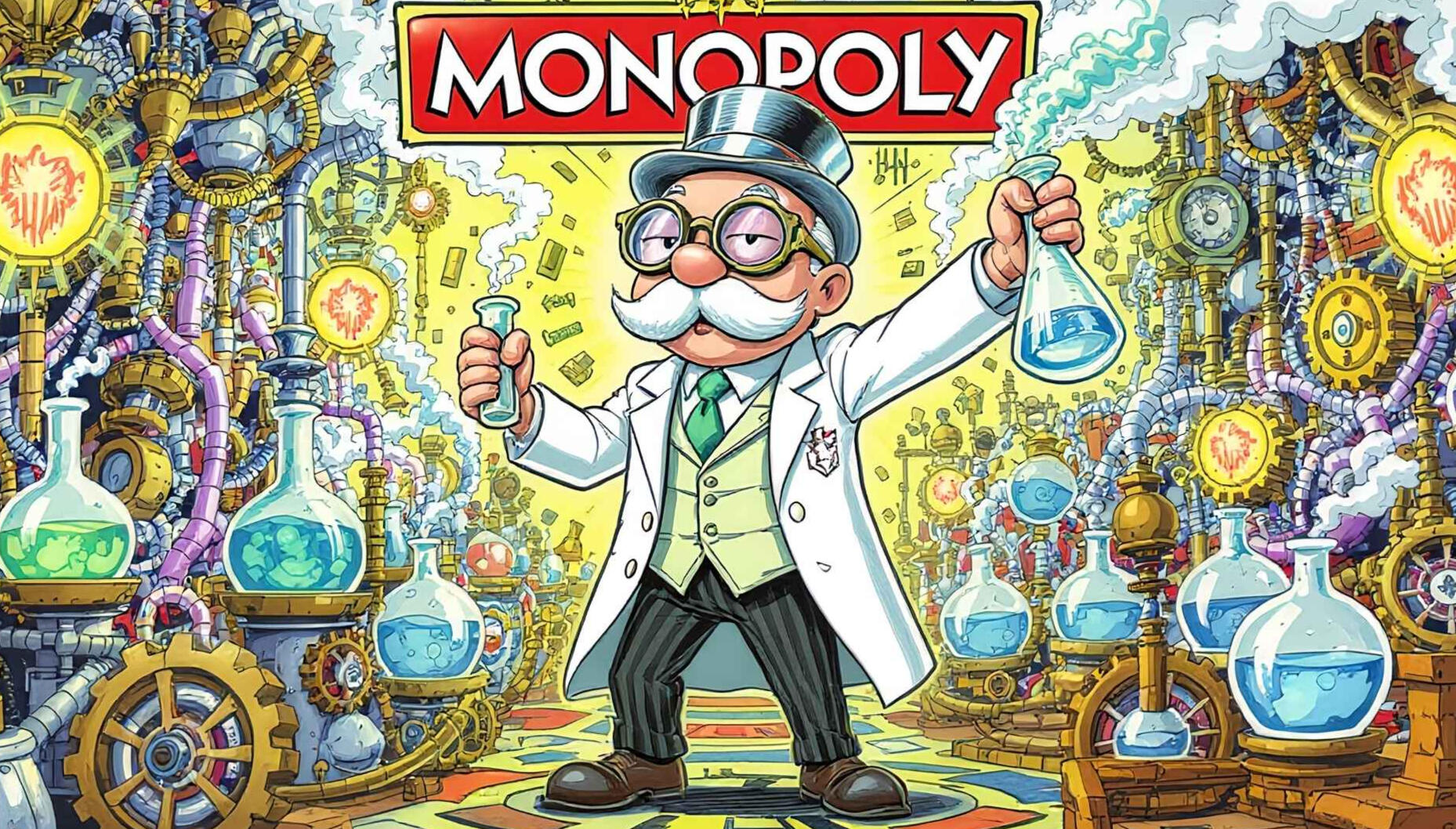
Enter Charles Darrow (and Parker Brothers)
So, where does Charles Darrow come in? In the early 1930s, Darrow learned the game from friends and saw its potential. He made his own version, added some now-iconic design touches (the “Go” arrow, Water Works faucet, and Electric Company light bulb), and began selling it locally.Darrow’s version was a hit, and he eventually sold the rights to Parker Brothers in 1935. The company, eager for a compelling origin story, credited Darrow as the sole inventor and paid him royalties, making him the first millionaire game inventor in history.But Parker Brothers soon realized Darrow wasn’t the only one with a claim. They tracked down Lizzie Magie and bought her patent for a measly $500 with no royalties and no fanfare. Magie’s name faded into obscurity, while Darrow’s became synonymous with Monopoly.The BoardThe original Monopoly board is a love letter to Atlantic City, New Jersey. Thanks to Ruth Hoskins and her Quaker friends, the properties are named after real streets in that seaside town.Boardwalk and Park Place are the priciest, while Mediterranean Avenue and Baltic Avenue are the cheapest. Even the four railroads - Reading, Pennsylvania, B&O, and Short Line - were inspired by real lines, though “Short Line” was actually a bus company.When Monopoly crossed the Atlantic to the UK, Waddingtons (the British publisher) swapped in London street names like Mayfair and Park Lane, a tradition that continues in international editions.The streets on the Monopoly board were originally chosen to reflect property values and the perceived status of their real-world counterparts in the 1930s.In the original 1935 UK order, the cheapest properties, which were on Old Kent Road and Whitechapel Road, were among the least expensive areas in London at the time, while Mayfair was (and remains) the most prestigious and expensive.Modern comparisons show that, while some of the board’s hierarchy still loosely matches real-world values, there have been significant shifts over time.For example, Trafalgar Square and Leicester Square have become much more expensive relative to other board locations, moving up in rank compared to their original positions. Some areas have undergone dramatic changes in status, reflecting shifts in London’s property market over the decades.
Tokens: From Buttons to Battleships
If you’ve ever fought over whether to be the thimble or the boot, you can thank the evolution of Monopoly’s playing pieces for your troubles. The very first Monopoly sets didn’t come with tokens at all, and players were told to use household objects like buttons or coins.Soon, wooden pawn-like pieces were introduced, and by 1937, Parker Brothers had included the first metal tokens: the car, iron, lantern, purse, rocking horse, shoe, thimble, and top hat. The dog and battleship joined later that year.During World War II, metal shortages forced a brief return to wooden tokens. Over the decades, some tokens were retired (farewell, iron and wheelbarrow), while others were added or swapped in by public vote (hello, cat, penguin, and T-Rex).The tokens have become a quirky hallmark of the game, with each new special edition introducing its own themed pieces, such as Pikachu for Pokémon Monopoly, or a dragon egg for Game of Thrones.The lineup has undergone multiple changes over the decades, influenced by public votes and company decisions.The Top Hat, Battleship, and Racecar are the only original token designs that consistently remain in today’s standard Monopoly sets.The rest have been replaced by newer tokens, often through public voting campaigns, but sometimes make cameo returns in special or anniversary editions.
How to Play: The Official Rules
Monopoly’s rules are both simple and, at times, the cause of endless debate at family gatherings. Here’s how the official game is meant to be played:Objective: The goal is to bankrupt all your opponents and become the last player standing.Starting Money: Each player begins with $1,500, distributed in various denominations.Turn Order: Players roll two dice, move their token, and take action depending on the space they land on. They can buy property, pay rent, draw a card, or go to jail.Doubles: Roll doubles, and you get another turn. Roll doubles three times in a row, and you go straight to jail.Jail: You can land in jail by rolling three doubles in a row, landing on the “Go to Jail” space, or drawing a “Go to Jail” card from Chance or Community Chest.To get out, you can pay $50, use a “Get Out of Jail Free” card, or roll doubles within three turns.Free Parking: Officially, this is just a free resting spot. No money, no prizes, no nothing. (Sorry!).Many families, however, play with house rules that make Free Parking a jackpot space, adding a random element that can drag the game on for hours.Building: You can build houses and hotels once you own all properties of a color group. Houses must be built evenly, and there are only 32 houses and 12 hotels in the game.If the bank runs out, you’ll have to wait, or bid against other players if there’s a shortage.Winning: The last player left after everyone else has gone bankrupt is the winner.Layout of the BoardLet’s talk real estate. The most expensive property on the classic U.S. board is Boardwalk, costing $400. Its partner, Park Place, is the second most expensive.The cheapest properties are Mediterranean Avenue and Baltic Avenue, with Mediterranean coming in at just $60.Each color group - ranging from the lowly browns to the mighty dark blues - offers escalating rents and development costs.There are eight color groups in the classic game: brown, light blue, pink, orange, red, yellow, green, and dark blue. Each group has two or three properties, and owning all in a group allows you to build houses and, eventually, a hotel.The board also features four railroads, two utilities (Water Works and Electric Company), and the infamous tax spaces (Income Tax and Luxury Tax).Chance and Community Chest CardsLanding on a Chance or Community Chest space means drawing a card that could send you to jail, award you cash, or force you to pay for street repairs.Chance cards are more likely to move you around the board, while Community Chest cards are a bit more likely to reward you with money, but both can be a blessing or a curse.The only cards you can keep are the “Get Out of Jail Free” cards; everything else is resolved immediately.
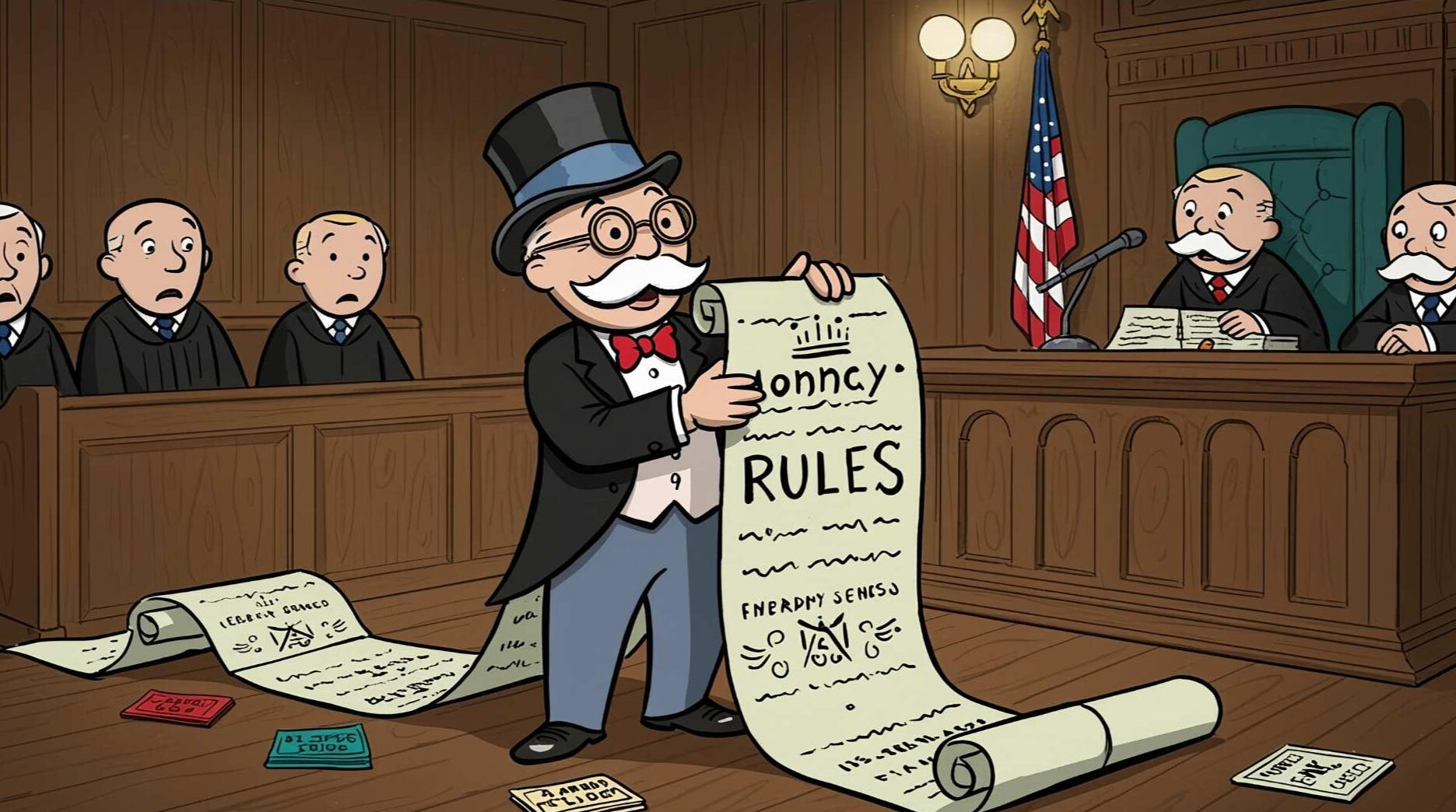
From Board Game to Global Brand
Monopoly didn’t just stay a board game; it became a cultural phenomenon. After Parker Brothers (and later Hasbro) took over, Monopoly exploded in popularity, especially during the Great Depression when people were eager for a fantasy of wealth.By 1936, it was the best-selling board game in America, and soon after, the world.The game has been translated into dozens of languages and localized for cities and countries around the globe.The UK version features London streets; there are also editions for Australia, France, and even Dubai. There isn’t a Monopoly for every single country, but Hasbro has licensed hundreds of city and country editions.
Legal Wranglings
Monopoly’s iconic status hasn’t shielded it from controversy. In fact, the game has been at the center of some of the board game world’s juiciest legal battles.The most famous dust-up began in the 1970s when economics professor Ralph Anspach created Anti-Monopoly, a game designed to flip Monopoly’s cutthroat capitalism on its head. Parker Brothers, then the game’s publisher, sued Anspach for trademark infringement, sparking a decade-long legal saga.During his defense, Anspach unearthed Monopoly’s true origins, tracing them back to Elizabeth Magie’s 1904 Landlord’s Game, long before Charles Darrow’s supposed invention.The case ultimately led to a groundbreaking ruling: the courts found that “Monopoly” had become a generic term for a type of board game, invalidating Parker Brothers’ exclusive trademark and allowing Anti-Monopoly to hit the shelves.Monopoly’s notoriety also made it a target for outright bans. In Cuba, Fidel Castro not only banned Monopoly after the 1959 revolution but ordered every copy destroyed, seeing it as a dangerous symbol of capitalism.China similarly banned the game for decades for ideological reasons, only lifting restrictions in the early 2000s. The Soviet Union and its satellite states also kept Monopoly out, fearing its capitalist message, though bootleg versions sometimes circulated underground.Even Buckingham Palace has reportedly banned Monopoly, though for reasons of family harmony rather than politics, with the royal family finding it “too vicious” for game night!
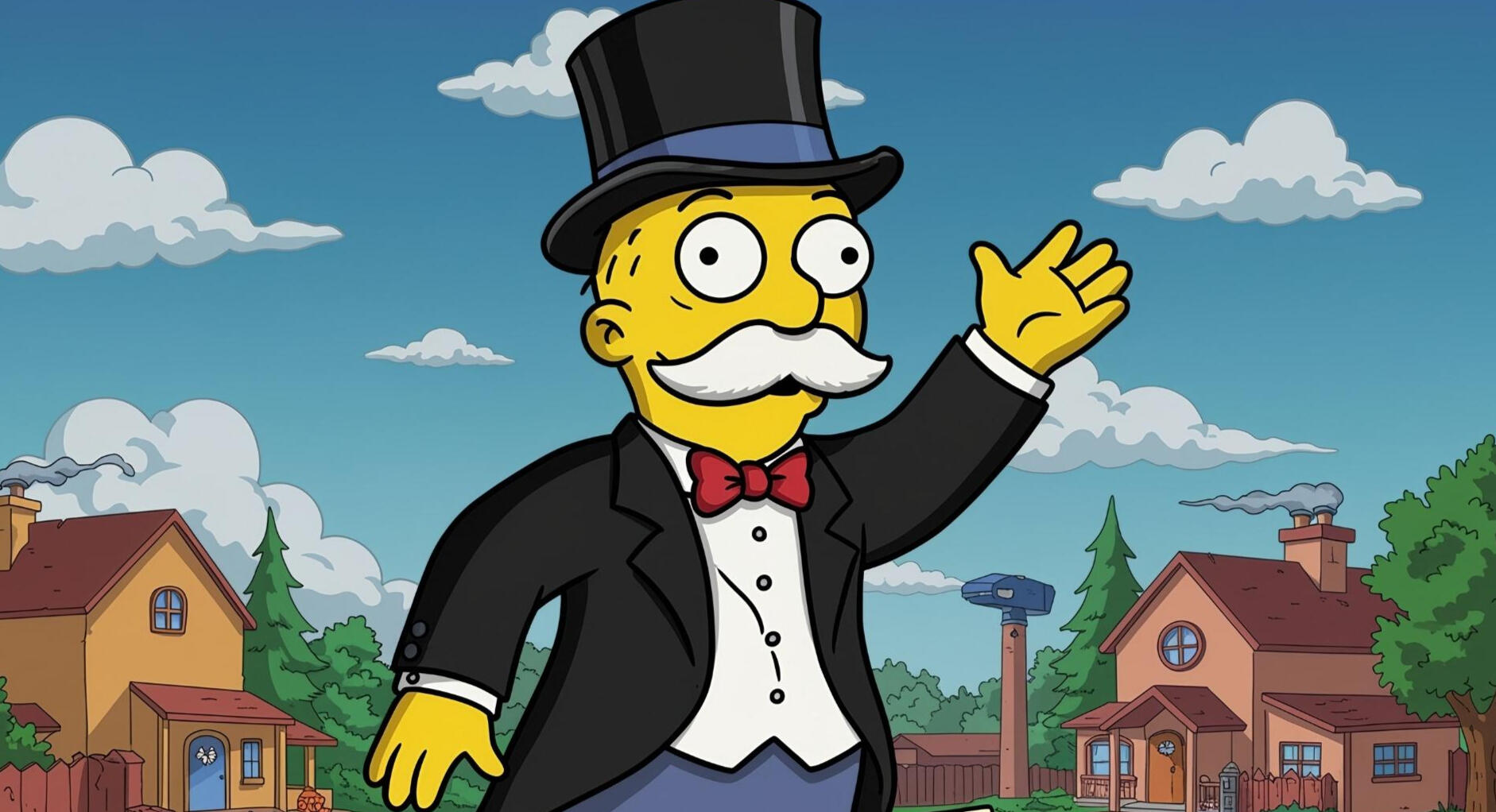
Special Editions: Monopoly Goes Pop Culture
If you can think of a movie, TV show, or video game, there’s probably a Monopoly version for it. Since Hasbro acquired Parker Brothers in 1991, the company has unleashed a tidal wave of special editions.There’s Game of Thrones Monopoly (with Westeros properties and dragon eggs), Super Mario Bros. Monopoly (with gold coins and Bowser tokens), Harry Potter Monopoly (with Hogwarts house points and magical locations), and Pokémon Monopoly (where you buy gyms instead of streets). Each special edition features custom tokens, cards, and rules to match the theme.These partnerships are tightly controlled. If you want to license Monopoly for your own brand or city, you have to go through Hasbro’s official licensing process, so no DIY Monopoly boards for commercial sale unless you want a visit from Hasbro’s lawyers.
Monopoly in the Digital Age
Monopoly has kept pace with technology, too. There are electronic banking versions, mobile apps, online multiplayer editions, and even Monopoly slot machines.The game has also inspired video game adaptations, from classic PC versions to console games and mobile apps. While the rise of video games has introduced more competition, Monopoly’s popularity remains strong, especially as a family or party game.
Competitive Monopoly & Records
Competitive Monopoly is a world unto itself, complete with high-stakes tournaments, quirky champions, and records that would make even Rich Uncle Pennybags blush.The Monopoly World Championships began in 1973 in Washington, D.C., and have since crowned champions from ten different countries, including the U.S., Spain, Japan, and the U.K..The 2009 championship in Las Vegas saw 19-year-old Norwegian student Bjorn Halvard Knappskog outwit and outlast 41 national champions to claim the title, and earn a prize of $20,580, the exact amount found in a standard Monopoly bank.The finals are a blend of ruthless negotiation, nerve, and a dash of luck, with players trading, mortgaging, and bankrupting each other in a spectacle that’s as tense as any poker tournament.If you think your family’s marathon Monopoly sessions are epic, consider this: the longest Monopoly game on record lasted a staggering 70 days, yes, over two months of relentless wheeling and dealing.Other records include the largest Monopoly board, a sprawling 900-square-meter creation in the Netherlands, and the most people playing Monopoly at once: 918 participants in Sydney, Australia, all rolling the dice for charity.Whether it’s world titles or world records, Monopoly proves that the quest for board game glory is truly boundless.
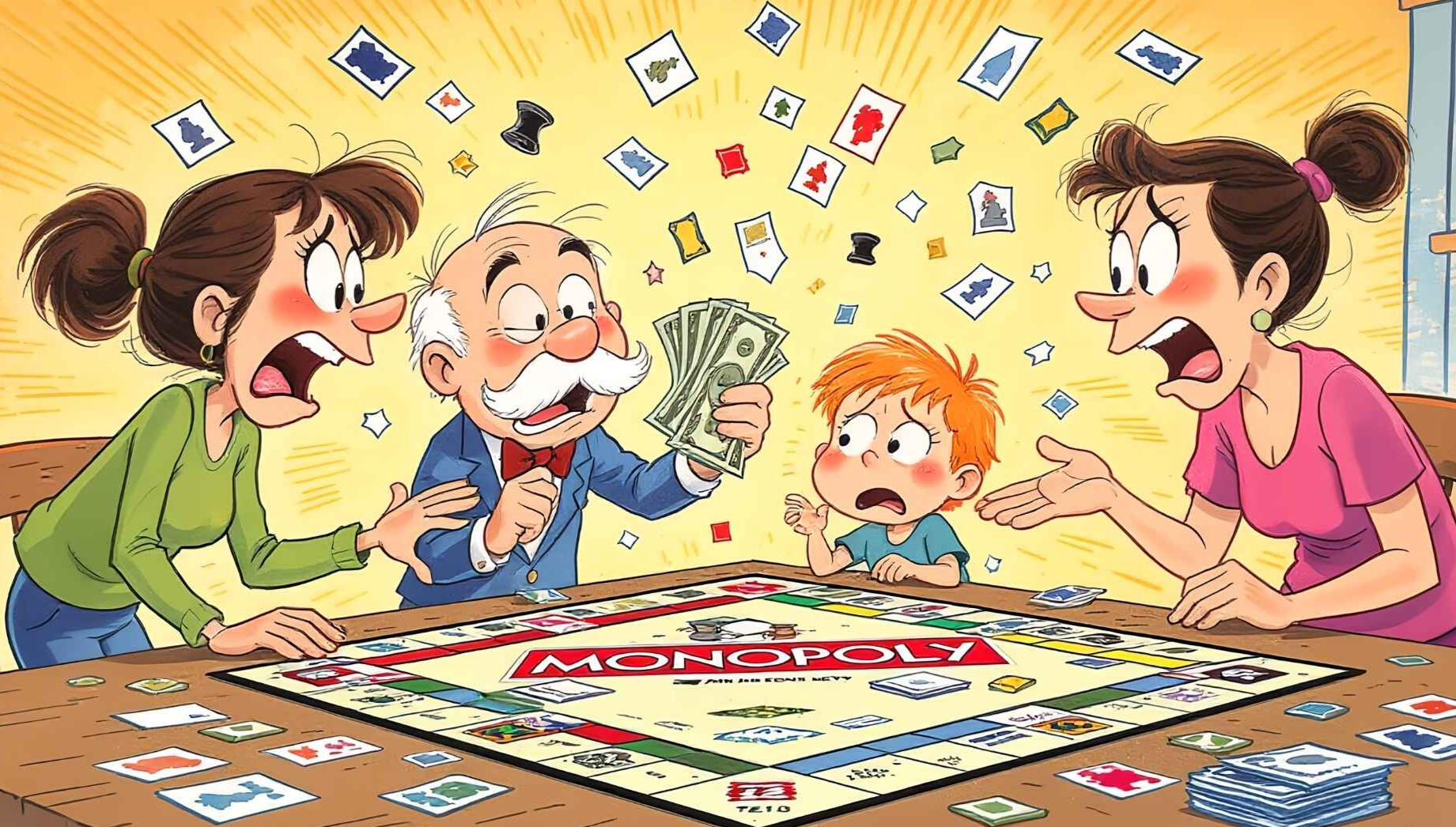
Still King of the Board
That is why Monopoly is one of the best-selling board games of all time. It’s estimated that over 275 million copies have been sold worldwide, in more than 100 countries and 37 languages.The game has been played by an estimated one billion people. While board game sales dipped in the early 2000s due to the rise of digital entertainment, Monopoly has enjoyed a resurgence thanks to nostalgia, special editions, and the growing popularity of board gaming as a hobby.There are hundreds, possibly thousands, of official Monopoly editions when you count all the city, country, and branded versions. Hasbro continues to release new editions every year, keeping the brand fresh and relevant.
Final Thoughts
Monopoly’s story is one of reinvention, controversy, and enduring appeal. It began as a lesson in economic justice, was co-opted as a celebration of capitalism, and has become a canvas for pop culture, nostalgia, and family rivalry.Whether you’re a ruthless property tycoon or just in it for the cat token, Monopoly remains a game that brings people together, sometimes for a little too long, sometimes with a little too much shouting, but always with the promise that, just maybe, this time you’ll finally own Boardwalk and Park Place.So next time you pass Go, remember: you’re not just playing a game, you’re taking part in a century-old tradition, one that’s as much about history as it is about hotels. And if you’re stuck in jail, well, at least you’re in good company.
© All rights reserved.